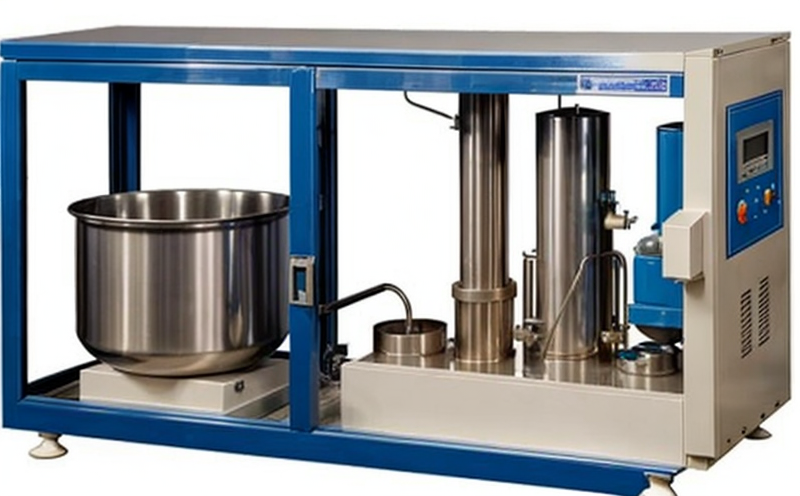EN 21769 Aflatoxin Analysis in Spice Residues
The European standard EN 21769 outlines a comprehensive methodology for the analysis of aflatoxins in spice residues, ensuring that food and feed products are safe from these potent mycotoxins. Aflatoxins, produced by certain molds such as Aspergillus flavus and A. parasiticus, are among the most toxic and carcinogenic compounds known to science. Given their potential for causing severe health issues in humans and animals, strict regulation is essential.
This service pertains directly to spice residues, which can serve as a significant source of contamination if not properly managed during processing or storage. The procedure described by EN 21769 ensures accurate identification and quantification of aflatoxin levels in these residues, providing critical data for quality assurance and compliance.
The analytical process involves several steps: sample collection, preparation, extraction, purification, and finally, the detection using high-performance liquid chromatography (HPLC) coupled with fluorescence detection. The standard specifies detailed protocols to ensure precision and accuracy, including the use of reference standards and internal controls. Compliance with this method ensures that results are reliable and comparable across different laboratories.
Our laboratory adheres strictly to EN 21769, employing state-of-the-art instrumentation and experienced personnel to deliver accurate aflatoxin analysis in spice residues. This service is crucial for ensuring product safety, maintaining consumer confidence, and meeting regulatory requirements.
The importance of this testing cannot be overstated. Aflatoxins pose significant risks not only to human health but also to animal welfare when present in feed products. Regulatory bodies worldwide have set maximum allowable limits (MLAs) for aflatoxin contamination, with the EU adopting stringent standards through EN 21769. Compliance is mandatory for importers and manufacturers aiming to prevent harmful contamination.
In addition to regulatory compliance, this service supports quality control initiatives by providing detailed data on aflatoxin levels. This information can be used to improve processing methods, enhance storage practices, and identify potential sources of contamination. Regular testing ensures that products remain safe throughout their lifecycle, from raw material procurement to final sale.
The standard's emphasis on accuracy and precision is critical in ensuring the reliability of analytical results. By adhering strictly to EN 21769, our laboratory guarantees consistent and repeatable outcomes, which are essential for maintaining product integrity. This method ensures that even trace amounts of aflatoxins can be detected, providing valuable insights into potential contamination risks.
The widespread use of this service extends beyond regulatory compliance to support research efforts aimed at understanding the sources and mechanisms of aflatoxin contamination in spices. By providing detailed data on aflatoxin levels, our laboratory helps researchers identify trends and develop strategies for mitigating these risks.
In conclusion, EN 21769-compliant aflatoxin analysis in spice residues is a vital service that supports both regulatory compliance and quality assurance. By leveraging this method, our clients can ensure the safety of their products and maintain consumer confidence, while also contributing to ongoing research efforts aimed at improving food safety standards.
Applied Standards
The European standard EN 21769 is widely recognized for its comprehensive approach to aflatoxin analysis in spice residues. This standard specifies the methodology and procedures necessary to ensure accurate and reliable results, which are essential for meeting regulatory requirements and ensuring product safety.
- ISO/IEC 17025: Our laboratory is ISO/IEC 17025 accredited, ensuring that all analytical processes meet the highest quality standards.
- EN 21769: This standard provides detailed protocols for aflatoxin analysis in spice residues, which our service strictly adheres to.
The combination of these standards ensures that we deliver consistent and reliable results, meeting both regulatory and quality assurance needs. Our laboratory is committed to maintaining the highest level of accuracy and precision in all analytical processes.
International Acceptance and Recognition
- European Union: EN 21769 is widely accepted by EU member states as a robust method for aflatoxin analysis, ensuring consistency in regulatory compliance.
- United States: While not specifically referenced in US regulations, results from this standard are often recognized and can be used to meet the requirements of various state and federal agencies.
- China: Results from EN 21769-compliant testing are widely accepted in China for regulatory purposes, contributing to global harmonization efforts.
- India: Compliance with this standard is recognized by Indian authorities, providing a pathway for seamless international trade.
- Africa: Several African Union member states recognize EN 21769, facilitating regional collaboration and harmonization of food safety standards.
The widespread acceptance of this standard underscores its importance in ensuring global consistency in aflatoxin analysis. By adhering to EN 21769, our laboratory ensures that clients receive results that are universally recognized, enhancing their ability to meet international regulatory requirements and participate in global markets.
Use Cases and Application Examples
The application of aflatoxin analysis in spice residues is crucial for ensuring product safety and compliance with international standards. Here are some real-world use cases:
- Supply Chain Management: Regular testing ensures that raw materials meet regulatory requirements, protecting the entire supply chain from contamination.
- R&D Projects: Our laboratory assists in R&D projects aimed at understanding aflatoxin contamination sources and developing mitigation strategies.
- Quality Control Programs: Continuous monitoring helps quality control teams identify potential issues early, ensuring product integrity.
- Compliance Audits: Results from this analysis provide robust evidence of compliance with regulatory requirements, facilitating successful audits.
In addition to these use cases, our laboratory also provides support for companies involved in international trade. By ensuring that products meet the stringent standards set by importing countries, we help clients navigate complex regulatory landscapes and maintain their competitive edge.
Our expertise in this area extends beyond testing to include consultation on best practices for minimizing contamination risks. This holistic approach ensures that our clients not only comply with regulations but also take proactive steps to enhance food safety.





